2023-2024 HR Student Spotlights
December 14, 2023
HR Student Spotlights
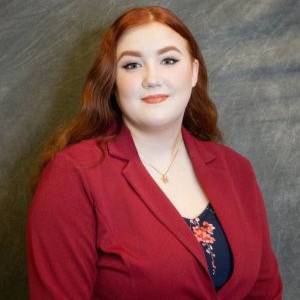
Madison White
LinkedIn: www.linkedin.com/in/madison-white1
Where is your hometown?
My hometown is in Keller, TX
Why did you decide to pursue a degree in HR?
I actually did not start out wanting to pursue a degree in HR my freshman year. I
planned to go into Hospitality Management to become a wedding/event planner. But I
got cold feet and wanted to go the more corporate business route. I chose the closest
degree to Business Management UNT offered (Business Integrated Studies). With that
degree, I had to pick two concentration choices. I did not know what to choose since
I loved a little bit of everything from my work experience in food service to the
IT Helpdesk (customer service, problem solving, talent management, etc.), but didn’t
know what degree concentration choices included all those soft skills. And after taking
a course with Professor Erin Welch, she invited me to the HR networking event. There
I met Professor Mariya Gavrilova Aguilar who encouraged me to take her 3860 Human
Resource Mgmt Course. From there, the rest is history and I fell in love with HR and
chose it as one of my degree concentrations.
How has the HR program at UNT helped you to reach your personal, academic, a/o professional
goals? (specific courses, advice from professors, HR career fairs, etc.)
The HR classes are smaller groups of students allowing for more open discussion. Now
after having had some experience in HR through my summer internship, I can really
see how UNT’s HR classes are big about not only teaching the black and white ‘textbook’
side of HR, but how those concepts play out in the real world, and some of the problems
that may arise. Also, the faculty within the management department are amazing. They
really get to know their students and love helping propel their students' careers
whether through increased networking, inside to HR events in the area, letters of
recommendation, etc.
What was the most important thing you learned in the HR program?
I learned that HR is never 100% ‘black and white’. A process or system can always
be improved. If nothing else, it is about listening first. Truly listening to your
company’s needs, as well as your employees when finding the best way forward will
help to satisfy both sides.
What is your greatest academic or professional accomplishment and why?
My greatest professional accomplishment was my capstone project I completed during
my internship with Kubota Tractor Corporation. In that project, I restructured the
job description & job posting formatting to increase marketability & applicant retention
rates. I also created e-learning training for employee development based on newly
developed core competencies. This was the greatest professional accomplishment I have
because I was able to create real HR change and solutions for a multi-billion-dollar
company that impressed seasoned HR professionals, with only being a student with limited
HR experience. This also proved to me my capabilities (and enjoyment) within HR and
my passion for helping to provide solutions for a company and its employees.
Where did you complete your internship and what were some key takeaways from it?
I interned at Kubota Tractor Corporation in Grapevine. My key takeaways were never
losing flexibility & problem-solving skills. In the HR world, something unexpected
will always come up. But learning how to navigate ever-changing deadlines, resources,
& expectations to benefit the company helped in staying competitive as an employee.
I found that flexibility & problem-solving can be one of the most valued assets for
a worker, sometimes even more so than tenure.
Another key takeaway I learned was to never be afraid to ask to questions and push the envelope (respectfully). I learned that even as an intern, I brought something valuable to the table. I brought a fresh perspective to HR and am closer to modern-day challenges HR helps to solve. Therefore, I was able to bring a different angle to the team when tackling issues. Being able to raise my hand, ask questions if something didn’t make sense, and have the confidence to walk up to someone, shake their hand, and get to know them was invaluable. I learned more from the experience when I advocated for myself and my own learning. The worst someone can say if you ask is ‘no’.
What are your career aspirations?
My current aspiration is to become an HR Generalist. However, I really enjoyed my
work within the talent management team at Kubota and may specialize in that niche
of HR if the opportunity arose.
If you were involved in UNT SHRM, briefly summarize your involvement, and explain
how your involvement helped you prepare for industry.
I became a member of UNT SHRM in Spring 2023. And am currently the Director of Community
Relations this semester. One of the biggest things offered to me as part of the organization
was networking opportunities & scholarship opportunities. I gained networking exposure
by getting connected with NTX SHRM & local HR events, such as the annual NTX SHRM
conference & monthly educational luncheons. This, along with guest speaker events
at UNT SHRM, helped me stay relevant in HR topics to be at least somewhat knowledgeable
& hold impactful conversations when networking with seasoned HR professionals. Also,
UNT SHRM provided valuable exposure to HR-specific student scholarships with less
competition than general UNT or academic-related scholarships. This has allowed me
to graduate debt-free unexpectedly. My last big takeaway from UNT SHRM is the relationships.
I think it is important to find like-minded people with similar goals & in similar
stages of their lives as you. This makes the academic & professional journey more
fulfilling and less lonely when you find like-minded people & friends to share it
with.
What advice do you have for future HR students who want to make the most out of their
experience at UNT?
My biggest advice is to find like-minded friends, and never turn down experiences
& opportunities. As I said in question 8., I think it is important to find like-minded
people with similar goals & in similar stages of their lives as you. This makes the
academic & professional journey more fulfilling and less lonely when you find like-minded
people & friends to share it with. It also pushes you to become better. Secondly,
never turn down opportunities & experiences that come your way. You never know where
it will lead, even if you are dubious. For example, if you have that extra time, get
out of your comfort zone, and go to that HR conference or luncheon you were told about.
You will not be a student forever. And I have found that people are more willing to
share their advice & experience with a confident student who approaches them rather
than a peer. The worst someone can say is ‘no’ (and I have yet to have heard it).
And oftentimes, those experiences are discounted for students, making them affordable.
And you will never hurt from having ‘too much’ exposure or experience in the HR world
in the metroplex. Get connected. And don’t be quick to turn down an open door for
an opportunity. You never know where it may lead.
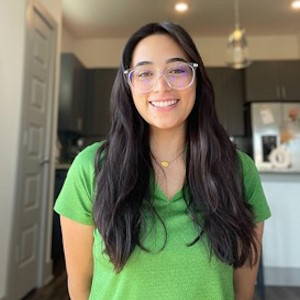
CeCe Lieberman
LinkedIn: https://www.linkedin.com/in/cecelieberman/
Where is your hometown?
Carlsbad, California
Why did you decide to pursue a degree in HR?
I pursued a degree in HR because I knew I always wanted to help people in their careers
and encourage them to be their best selves.
How has the HR program at UNT helped you to reach your personal, academic, a/o professional
goals? (specific courses, advice from professors, HR career fairs, etc.)
I owe all my HR experiences and Internships to the HR Program here at UNT. Thanks
to the career fairs, advice from professors, and the mentor program within UNT SHRM,
I have had opportunities that I could not have gotten without the program.
What was the most important thing you learned in the HR program?
The most important things I learned in this program is to believe in myself and be
able to present myself to employers.
What is your greatest academic or professional accomplishment and why?
Graduating with honors and being able to complete 2 HR Internships are my greatest
academic and professional accomplishments. Prior to starting college, I could not
imagine seeing myself where I am today, with both of these accomplishments and being
the VP for UNT SHRM.
Where did you complete your internship and what were some key takeaways from it?
This past summer, I completed an Internship at Peterbilt in Denton, TX. I did a rotation
of areas within HR including recruitment, safety, training, and overall corporate
HR. My biggest takeaway from this internship is knowing more about where within HR
I want a career.
What are your career aspirations?
Though I do not know where I will end up, I know I want to be able to experience most
or all aspects of HR, from recruitment to health and safety.
If you were involved in UNT SHRM, briefly summarize your involvement, and explain
how your involvement helped you prepare for industry.
I have been involved with UNT SHRM since Spring 22 only spending 1 semester as a member
than becoming an officer. I first was the officer for information systems and now
I am the Vice President. Before joining, I was not the best at public speaking I didn’t
have the confidence to sell myself to professionals, but after my involvement with
UNT SHRM, I have learned so much about the HR industry through our guest speakers,
and I gained the confidence I needed to move forward in my professional career.
What advice do you have for future HR students who want to make the most out of their
experience at UNT?
My biggest advice is to join student orgs. Through these organizations, you can meet
new people, build your connections professionally, and always have access to advice
from your peers or your org advisors.
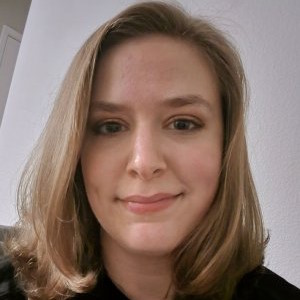
Casey Cook
LinkedIn: https://www.linkedin.com/in/caseycookie
Where is your hometown?
New Braunfels, TX
Why did you decide to pursue a degree in HR?
After dropping out of music school, I thought I had failed at the one thing I was
good at. After a few years working multiple jobs in the service industry, I discovered
this was not true, and I had many talents, including an affinity for training and
development. It wasn’t long before I went back to school for HR.
How has the HR program at UNT helped you to reach your personal, academic, a/o professional
goals? (specific courses, advice from professors, HR career fairs, etc.)
While I have previously had vastly polarized experiences with group projects, I came
away from all of them with crucial experiences, ranging from active listening to conflict
resolution, to leadership tactics. Regardless of the circumstances, working with people
is guaranteed in HR, and there is always something to learn from them.
What was the most important thing you learned in the HR program?
Since my academic experience was mostly through asynchronous learning, there were
many times (while taking exams at 2am or on lunch breaks) where I felt so overwhelmed
and isolated. If this is your situation, do not be afraid to reach out for help or
even just someone to talk to. Join an org, look at group projects as an opportunity
to connect, talk to your professor. The HR professors at UNT are so amazing and supportive
(shoutout to Professors Maria Gavrilova Aguilar, Erin Welch, and Michael Killough).
Even though I had extremely limited face to face contact, my experiences showed that
they really do care about your progress and want to see you succeed.
What is your greatest academic or professional accomplishment and why?
While I struggle to name one instance, I am most proud of my growth in interpersonal
relationships. I have worked in supervisory positions all throughout my academic career
and have been fortunate to have an outlet for applying my learned content in real
time. Looking back to where I started, I have seen an exponential increase in my ability
to not only grow myself, but also foster this process in others I have met along the
way. I have had countless opportunities to meet people at the beginning of their educational/working
journey, and to see how much they can grow when given even the slightest energy and
patience.
Where did you complete your internship and what were some key takeaways from it?
I have not yet landed an internship, but I have worked full time throughout the process
of earning my degree. The most important skill I have taken from this experience is
the importance of being organized and managing one’s time and, in some cases, how
to recover from when things fall through the cracks.
What are your career aspirations?
>While my passion is in training/development, I hope to spend some time in the short
term as a generalist or rotating through all disciplines of HR. Even though I’ve spent
the past four years studying HR, it is still so interesting to me, and I want to learn
as much as I can. Long term, I would love to take all that wisdom and apply it as
an HR business partner.
If you were involved in UNT SHRM, briefly summarize your involvement, and explain
how your involvement helped you prepare for industry.
Unfortunately, I couldn’t participate in SHRM until my senior year. I was a member
one semester and have taken on the position of Chapter Information Systems for the
current semester.
What advice do you have for future HR students who want to make the most out of their
experience at UNT?
Never miss out on an opportunity to network. It doesn’t have to be a big deal, a little
goes a long way and it is so essential in building up your career.

Elon Abebe
LinkedIn: https://www.linkedin.com/in/elon-abebe-76293221b
Where is your hometown?
I grew up in Allen, TX.
Why did you decide to pursue a degree in HR?
Originally, I was motivated to pursue a degree in HR because the recruitment process
always interested me as a child. Growing up as a first generation American, I always
helped my parents with their resumes and preparation for interviews, which later proved
to be helpful when it came to my own job search. As I grew older, I wanted to incorporate
my love for people with business and pursuing a degree in HR seemed like the perfect
fit.
How has the HR program at UNT helped you to reach your personal, academic, a/o professional
goals? (specific courses, advice from professors, HR career fairs, etc.)
The HR program at UNT greatly aided in my professional development for my career goals.
I truly appreciate how the professors in the HR program are supportive and passionate
about helping students find opportunities for professional development such as networking
events, career fairs, and internship opportunities. I would like to recognize Dr.
Aguilar and Professor Welch for their knowledge and guidance which helped me gain
a deeper understanding of HR concepts and industry trends. Their dedication to assisting
students is truly remarkable and has had a significant impact on me personally.
What was the most important thing you learned in the HR program?
The biggest takeaway I learned in the HR program is how the HR industry is consistently
changing and transforming which is why it is important to stay up to date with the
latest industry trends. Some ways I can ensure that I keep up with the latest trends
is through professional associations like SHRM and attendance at seminars and conferences
that offer insights on current workplace developments.
What is your greatest academic or professional accomplishment and why?
My greatest professional accomplishment is graduating early with internship experience
in a professional environment. Through my internships I was able to gain important
technical skills and grow as a professional. The relationships and mentors I have
gained through the internship program have positively impacted me.
Where did you complete your internship and what were some key takeaways from it?
I was a summer 2022 Strategic Recruiting intern at Ryan, LLC. During this time, I
gained knowledge and skills relating to executive talent acquisition. These skills
included sourcing through candidates LinkedIn Recruiter, updating candidate progress
and job postings in Workday, and tracking candidate and recruiter activity through
Salesforce Navatar. I returned as an intern the following summer under the same team
but also as an Innovation Lab Intern with the Global Data Strategy team where I learned
how to utilize data to provide insights for upper management. Some of the new skills
I learned included building reports and dashboards, utilizing PBI for data visualization,
and utilizing Alteryx to clean and transform data.
What are your career aspirations?
My current goals include broadening my analytical skills so that I can combine my
knowledge in human resources with data driven decision making.
If you were involved in UNT SHRM, briefly summarize your involvement, and explain
how your involvement helped you prepare for industry.
My involvement as a member of UNT SHRM gave me opportunities to attend HR networking
events and seminars where I was able to learn from HR experts that provided insights
and solutions to common HR issues.
What advice do you have for future HR students who want to make the most out of their
experience at UNT?
My advice for future HR students would be to take advantage of the resources that
UNT provides for students and to join at least one professional organization that
is career specific. These resources and organizations will expose you to many opportunities
for career growth and personal development. I would also encourage future HR students
to attend career fairs and acquire an internship so that you can gain practical experience
in the workforce.
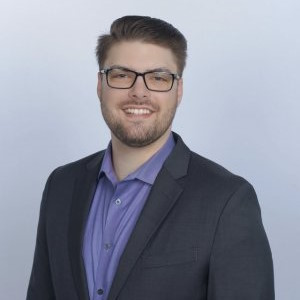
Zachary Reed
LinkedIn: www.linkedin.com/in/zacharyreed1
Where is your hometown?
Fort Worth, Texas
Why did you decide to pursue a degree in HR?
Originally, after graduating high school, I decided that I wanted to go out into a
field and figure out what it is that I really enjoy doing. Throughout my time, I was
able to move up through various positions and dabble in a variety of roles at our
location. This is when I found an unexpected passion for HR, and I got to try my hand
at learning and development, onboarding, and talent acquisition. During the pandemic,
my industry shut down for an extended period. While I enjoyed my time at home… I quickly
realized that without professional experience or a degree my career would remain stagnant.
I soon joined UNT and started to work towards my degree in HR to take my career to
the next level.
How has the HR program at UNT helped you to reach your personal, academic, a/o professional
goals? (specific courses, advice from professors, HR career fairs, etc.)
The HR program at UNT has provided me with many opportunities to expand and challenge
my knowledge. Opportunities to network with employers and other students are some
of the ways that the program has helped me reach my goals. HR classes at UNT are generally
smaller compared to other majors, so you have plenty of opportunities to engage with
fellow students and professors who have a wealth of professional expertise. I was
able to challenge my assumptions of HR in a safe learning driven environment.
What was the most important thing you learned in the HR program?
One of the most important things I learned in the HR program was to be human. Of course,
all relevant employment laws, strategic management, and all other HR functions are
just as important. But, as HR professionals, you encounter sensitive situations that
require dignity and tact. Remembering the human aspect of your role can make a world
of difference to an employee experiencing a hardship.
What is your greatest academic or professional accomplishment and why?
While studying as a full-time student at UNT, I maintained a full-time position with
my current employer, as a line manager. Coming back to higher education after taking
a break and maintaining my employment status was quite the challenge. My greatest
academic accomplishment comes from my ability to excel through that challenge. Throughout
my semesters at UNT I received multiple distinctions on the President’s and Dean’s
lists at UNT and the Ryan College of Business. Being able to excel as a full-time
non-traditional student is an accomplishment that I am very proud of.
What are your career aspirations?
After graduation, I am looking forward to joining the professional field and applying
the knowledge I’ve learned to people and practices. After starting as an HR generalist,
I hope to continue to advance through the roles in HR and advance to a more strategic
HR business partner. Finally, after gaining industry experience, I hope to pursue
my MBA to further my education.
If you were involved in UNT SHRM, briefly summarize your involvement, and explain
how your involvement helped you prepare for industry.
I joined UNT SHRM my senior year, and I wish I had joined sooner! SHRM is a great
way for you to connect with other HR students to start building your network of people.
The connections that I have made at UNT have helped me create meaningful connections
with future HR professionals.
What advice do you have for future HR students who want to make the most out of their
experience at UNT?
The best advice I have for future HR students, or any UNT student, is to take advantage
of every opportunity that comes your way. Every experience has value, and you can
always take that experience with you. Make meaningful connections with your professors
and fellow students, they will be your best resource as you navigate through the program
and beyond. Finally, never be afraid to step out of your comfort zone. No one is going
to do it for you!

Warisha Khan
LinkedIn: www.linkedin.com/in/warishakhanhr
Where is your hometown?
Karachi, Pakistan
Why did you decide to pursue a degree in HR?
My initial plan was to pursue a degree in psychology with hopes of becoming a psychologist.
However, I later realized that achieving my goal would require a master's degree,
which led me to reconsider. Upon researching emerging career opportunities, I discovered
that Human Resources (HR) aligned perfectly with my interests. It's a field I'm passionate
about, and I'm excited to pursue it. I believe HR offers a fulfilling path where I
can excel and make a meaningful impact in the coming years.
How has the HR program at UNT helped you to reach your personal, academic, a/o professional
goals? (specific courses, advice from professors, HR career fairs, etc.)
Professor Virginie Kidwell’s class on emotional intelligence was a game-changer. It
was like a crash course in life skills. I learned how to navigate my emotions, build
better relationships, and even master the art of a sincere apology. This knowledge
has been like a secret weapon in my personal life, helping me grow as a person and
act more maturely. Thanks to the HR program at UNT, I’ve not only gained academic
knowledge but also life skills that will stay with me forever.
Professor Aguilar supported me beyond the classroom. She provided guidance and a listening ear for both work-related issues and personal matters. Her mentorship has been invaluable in shaping my approach to both personal and professional challenges.
Professor Verrelli was a tremendous help. She gave me invaluable advice on joining the UNT Society for Human Resource Management (SHRM), and thanks to her guidance, I took a big step in my professional journey. After becoming a member of SHRM, I secured an internship and gained a deeper understanding of HR. Her support helped me move closer to my professional growth.
Professor Welch's summer course was hands down the best summer class I've experienced at UNT. It was incredibly engaging, and what made it stand out was that the tests were directly tied to the lectures, which were all based on the latest industry knowledge. This class not only made my summer enjoyable but also equipped me with skills that I directly applied and excelled in during my internship.
What was the most important thing you learned in the HR program?
The most important thing I learned in the HR program at UNT is how essential basic
business skills are in the field of Human Resources. It's not just about people skills;
it's also about making sure HR practices help the whole company succeed. For example,
I learned how to write a killer resume, cover letter, and LinkedIn profile, which
turned out to be super important. These skills helped me stand out and land internships
and job opportunities. Plus, I also learned about 'strategic management' in HR. It's
like ensuring HR is on the same page as the company's big plans. That way HR can help
the company achieve its goals, which is pretty awesome!
What is your greatest academic or professional accomplishment and why?
My greatest academic achievement is maintaining a high 3.9 GPA, which shows my dedication
to learning and has helped me secure valuable scholarships. On the professional side,
my work at the State Fair of Texas was a big win. I got to put all my knowledge from
classes into action, like working with teams and solving real problems. It wasn't
just a job; it was a chance to see how what I learned in school matters in the real
world. Plus, it helped me build important connections and confirmed that HR is where
I want to be.
Where did you complete your internship and what were some key takeaways from it?
My internship at the State Fair of Texas has been a blast! I've learned so much about
Texas and had the chance to be part of this amazing fair. The best part is getting
hands-on experience with Human Resources Information Systems (HRIS), which is super
important in HR. Plus, I've become a pro at paying attention to details and working
in a fast-paced environment. It's been a real eye-opener and a lot of fun.
What are your career aspirations?
I'm really passionate about helping people and making a big difference in the world.
My ultimate goal is to become the Chief Human Resources Officer (CHRO) of a large
multinational company. In that role I can use my love for learning to come up with
cool new HR ideas that will make the company's team even better. I also want to create
a work environment where everyone feels included, valued, and happy. It's my big dream
to do all this on a global scale and leave a lasting impact on the world of HR and
business!
If you were involved in UNT SHRM, briefly summarize your involvement, and explain
how your involvement helped you prepare for industry.
I was involved in UNT SHRM, which was a pivotal part of my journey to prepare for
the HR industry. One of the standout moments was when I gained my first internship
through my SHRM connections. During our formal dinners and networking events, I had
the fantastic opportunity to meet and connect with seasoned HR professionals. These
interactions not only boosted my motivation but also provided me with invaluable insights
into the industry. It was through SHRM that I established the connections that kick-started
my career in HR, and I am incredibly grateful for the guidance and opportunities it
offered.
What advice do you have for future HR students who want to make the most out of their
experience at UNT?
Here's some friendly advice for anyone starting their HR journey at UNT: Professors
are your allies, so never hesitate to ask for help or guidance. Curiosity is your
superpower; don't be shy about asking questions because it makes learning way more
fun. Third, take your class material seriously because what you learn in school is
like your secret sauce for the real HR world. And lastly, go to those networking events,
they're awesome! You get to meet cool HR people, maybe land an internship, and discover
exciting opportunities you didn't even know were out there. I can vouch for it because
these tips have really helped me on my HR adventure!
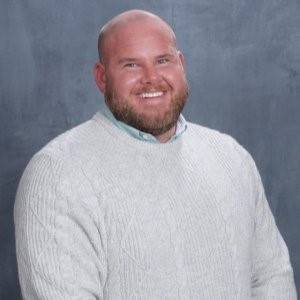
Joshua Windham
LinkedIn: https://www.linkedin.com/in/joshuawindham/
Where is your hometown?
Originally from Benton, Louisiana, I relocated to the Dallas area 6 years ago for
new opportunities in a major metropolitan market.
Why did you decide to pursue a degree in HR?
During COVID-19 I decided to return to school to finish my degree. When I first applied,
it wasn’t for HR, but after being immersed in HR daily with my fiancé working from
home, I soon learned what HR was and how our profession can improve lives. With a
passion for people, I quickly applied to the Ryan College of Business and, after acceptance,
declared an HR major. The decision to pursue a degree in HR has already brought a
feeling of fulfillment and is sure to have been one of the best decisions of my life.
How has the HR program at UNT helped you to reach your personal, academic, a/o professional
goals? (specific courses, advice from professors, HR career fairs, etc.)
I am well on the way to achieving my goals. The Professors I have had the pleasure
of working with at UNT have challenged me to be the best I can be. The professors
here care about your future and have offered post-graduation mentoring. They instruct
with passion and genuine depth of knowledge, lending real-life experience to topics
through subject matter experts and local HR professionals at respected companies to
expand on learning topics from class and practical application in their company daily.
Through their instruction, the HR program at UNT and the Ryan College of Business
professors helped me visualize my goals and initiate networking plans. I’m energized
about my future goals.
What was the most important thing you learned in the HR program?
One of the most principal things I have learned in the HR program is that “it depends”
is the go-to for anything HR. And with that mantra, there is never any cut-and-dry
answer to HR matters. Our social and business environment is ever evolving, and with
HR squarely at this intersection, we get to work on problem-solving constantly. And
hopefully, more times than not, our solutions enrich the lives of the people we work
with.
What is your greatest academic or professional accomplishment and why?
My significant academic or professional achievement was the deliberate choice to make
education my top priority. After graduating from High School, I began college, but
I wasn't quite ready for that phase of life. Later, after a period of regrets for
not finishing a college degree, I found unwavering support from my fiancé and family,
which empowered me to commit to finishing my degree. Without question, this has been
a pivotal point in my life journey and one of the most rewarding decisions I have
ever made. I can proudly say that my HR degree from UNT will be my greatest academic
accomplishment – thus far!
Where did you complete your internship and what were some key takeaways from it?
During my summer internship with Supreme Lending in their Onboarding Department, I
gained valuable insights into the corporate world. One key takeaway from this experience
was the opportunity to experience what a healthy culture at a company looks and feels
like, notably supportive colleagues and an inclusive atmosphere. I also learned that
through onboarding, you can create a positive initial experience for someone who may
be nervous about joining a new organization. Being that point of contact can set the
tone of how someone can see themselves thrive with a company. Lastly, through our
internship team project, I learned the practical value of collective efforts and the
power of teamwork was evident in our presentation to leadership at the end of the
summer. As a result of my contributions and dedication, I was offered the opportunity
to stay on to help with the Training and Development Team after my internship concluded.
I am truly grateful to the Supreme Lending Leadership Team, the team that led the
Internship Program, the Onboarding Team, and the Training and Development Team.
What are your career aspirations?
After graduation, I’m eager to go into the compensation field. My aspiration is to
begin my CCP certification. As I look ahead, I can only see up and I am confident
that my time at UNT and the path I have chosen will lead to personal growth and success.
I cannot wait to see where my career will lead.
If you were involved in UNT SHRM, briefly summarize your involvement, and explain
how your involvement helped you prepare for industry.
My senior year was my first involvement in UNT’s SHRM chapter, and I genuinely wish
I had become more involved earlier. Any business major, whether HR or another path,
if you are interested in business, SHRM is an invaluable resource. The insights and
knowledge offered can significantly enhance your professional journey. I better recognize
the role a network of people plays in your work-life today and in the future and want
to be part of a professional community helping each of us continue to grow and learn.
What advice do you have for future HR students who want to make the most out of their
experience at UNT?
Embrace the opportunity to come out of their shells and be uncomfortable learning.
Join any organization that sparks an interest to further your exploration of your
true inner self. My own journey serves as a good lesson - as a non-traditional student
coming into UNT, I kept to myself, and this persisted until my senior year when I
finally I broke out of my silence and became more actively involved. And this turned
out to be the most enriching and rewarding experience of my time here. Don’t follow
my example – engage in every change to explore and grow here at UNT.
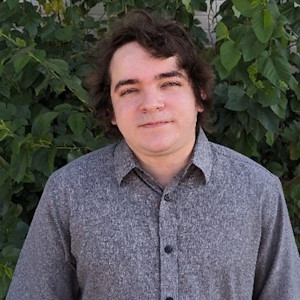
James Meza
LinkedIn: www.linkedin.com/in/jamesmeza
Where is your hometown?
I am from Arlington, Texas.
Why did you decide to pursue a degree in HR?
I decided to pursue a degree in HR after seeing the impact HR can have on so many
different parts of the company. I have always been passionate about problem solving
and hearing about the unique problems HR deals with, I knew that was the right degree
for me.
How has the HR program at UNT helped you to reach your personal, academic, a/o professional
goals? (specific courses, advice from professors, HR career fairs, etc.)
The HR program has helped me in many ways personally, academically and professionally.
The first Human Resource Management class I took showed me the importance of Human
Resources to a company’s operations and success. By implementing some of what I’ve
learned in the program at my job, I was able to see real-time results of good HR practices,
like keeping employees motivated, which made me love HR even more.
The professors also offer great examples to go along with what is taught in the material, pulling from their experiences in the HR industry, which allows me to think practically about what I have learned and start thinking about how I can use it in the future. Dr. Gavrilova Aguilar and Professor Welch have been especially helpful in preparing me to work in HR after graduation.
What was the most important thing you learned in the HR program?
The most important thing I’ve learned in the HR program is to always look at the big
picture. Since HR has so many different functions, it is important to think strategically
about why decisions are being made and what the desired outcomes are.
What are your career aspirations?
I aspire to become an HR Generalist after graduation, with the eventual goal of becoming
an HR Business Partner in the future.
If you were involved in UNT SHRM, briefly summarize your involvement, and explain
how your involvement helped you prepare for industry.
I am a new member of UNT SHRM, and my involvement has already connected me with other
aspiring leaders that are also passionate about HR. It is a great way to network and
hear about various experiences people have had, as well as hear from guest speakers
who work in the industry.
What advice do you have for future HR students who want to make the most out of their
experience at UNT?
If I were to give advice to a future HR student, I would tell them to become involved
with HR in and out of school. In school, join UNT SHRM to connect with other students,
and speak with your professors to ask questions about what it is like to work in HR
to see if you like it. Outside of school, look for opportunities at your job to use
HR to improve the processes you and your colleagues interact with, or seek out an
internship to gain experience working in HR.